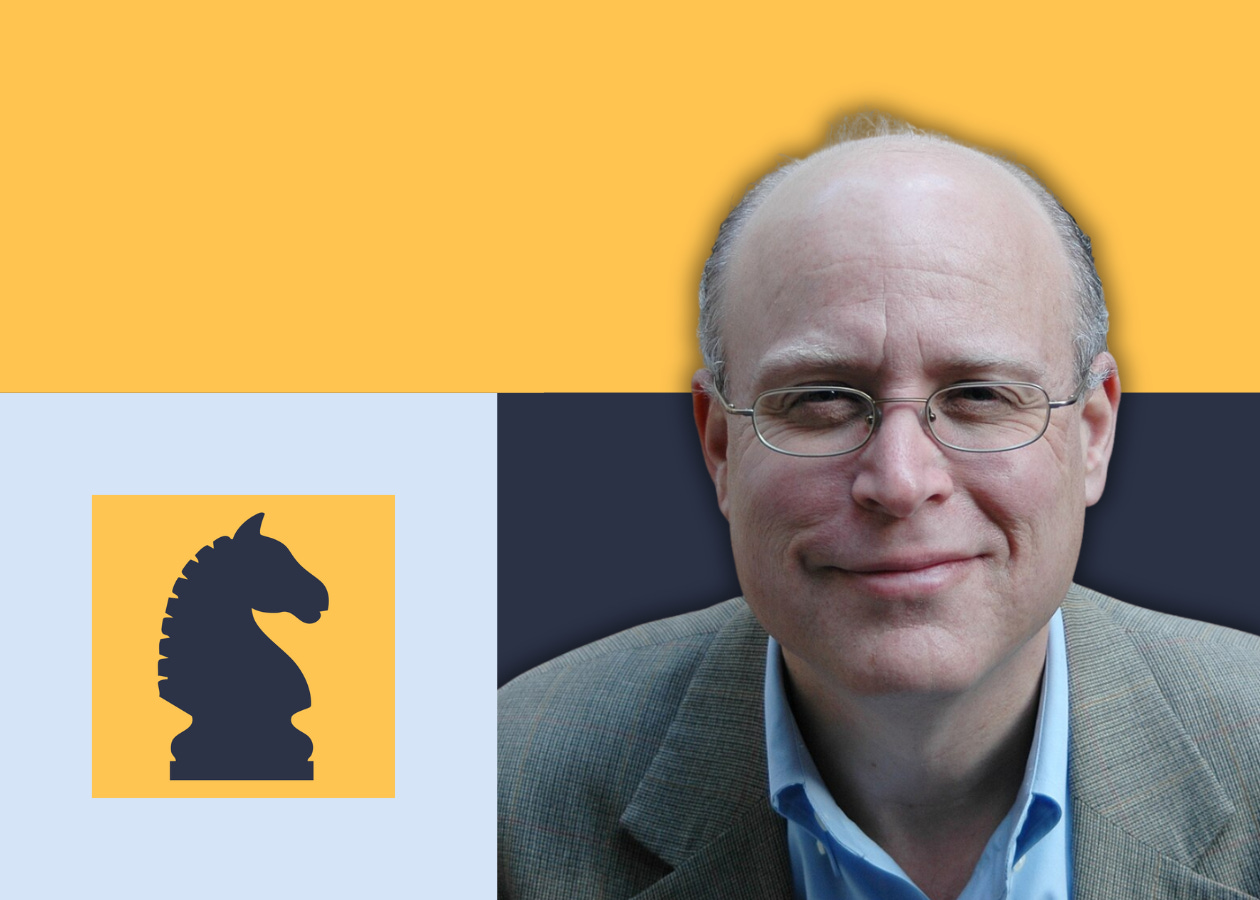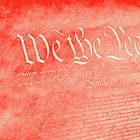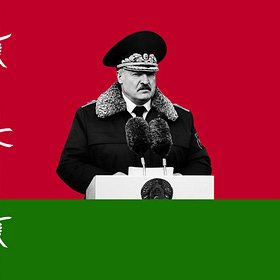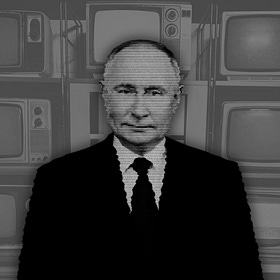Fortune Favors the Bold
Welcoming Jay Nordlinger from National Review to The Next Move as we build a bench of people defending freedom and democracy.
EDITOR’S NOTE: Americans’ First Amendment freedoms face unprecedented threat. We’re hosting an exclusive Zoom call with Garry Kasparov to address this crisis today, Thursday September 25, at 12pm ET/9am PT. Space is limited in order to keep the discussion interactive. Don’t wait to sign up. Register here.
A message from Garry Kasparov: When we talk about America these days, we often talk about a “pro-democracy camp.” It tells you a lot about the state of American politics that this term even exists. It’s a product of the unhealthy state of American politics. A healthy society argues about fiscal policy or other such topics. It does not have people wondering whether the constitutional structure will hold.
The center-left is prominent in the pro-democracy camp. But this camp should not, and does not, contain only one stream of thought. A free society needs both liberals and conservatives, to sharpen each other’s thinking, solve important problems, and defend our institutions.
That is why I am proud to announce that Jay Nordlinger, formerly of National Review, is now joining the Renew Democracy Initiative as a senior resident fellow and contributor at The Next Move.
Earlier this year, Mike Pence called Jay, “one of conservatism’s most gifted pens.” By bringing Jay into The Next Move, we’re bringing a much-needed point of view into our discussions around politics, culture, and the future of democracy. We must not cede conservatism to people whom Ronald Reagan would not recognize as his fellows.
A little biographical background: Jay’s life and mine have actually followed parallel and intersecting paths. We were born in the same year, 1963, although his Ann Arbor, Michigan, was very different from my Baku, Azerbaijan Soviet Socialist Republic. He also tells me that he never learned to play chess!
But Jay admires Reagan, Margaret Thatcher, and their like. So do I, for how they stood up to Soviet communism and confidently supported the values of freedom and democracy. Such figures played an instrumental role in my political development, as they did in Jay’s.
In the 1990s, Jay was a writer and editor at The Weekly Standard, founded by Bill Kristol, et al. He then worked, for many years, at National Review, founded by William F. Buckley Jr. WFB meant a lot to him, and so has the other Bill, Kristol.
“What is American conservatism for,” Jay has told me, “if not to preserve our constitutional republic?” He is a conservative, but not a partisan. His career has also brought him into close contact with political dissidents from all over the world. He has written about them steadily and faithfully. He is opposed to dictatorships across the board: “left” or “right,” “red” or “black.” This is part of what makes him a perfect match for RDI, which works to bridge the gap between the theoretical aspects of authoritarianism and the firsthand experience of the countless millions who live it.
So, as we work together on behalf of democracy, please welcome Jay Nordlinger to RDI and The Next Move. Here is his first piece, with many more to follow.
Nothing is Written
On the perpetual struggle for freedom, democracy, and human rights
Jay Nordlinger is a senior resident fellow at the Renew Democracy Initiative and a contributor to The Next Move.
The renewal of democracy: a good idea. And a noble project. I will start out with a few words about my own country. (“America First”!)
Ideally, the United States should run on a kind of autopilot—a constitutional autopilot. We are “a nation of laws, not men.” Yes, but the “men”—the people in charge, and the people at large—are very important. Paper arrangements are not enough.
What did John Adams say? If people of low character occupy high office, it will “break the strongest cords of our Constitution as a whale goes through a net.” (That was a natural simile for a New Englander to think of.)
In the 19th century, a French scholar, Ernest Renan, said that a nation is “a daily plebiscite” (or “a daily referendum”). Every day, a nation can, to a degree, decide what it wants to be. What it wants to stand for, or represent.
To my sense, this is good news and bad news. The bad news is, nothing is ever “set.” But that is the good news, too: If we have gone astray, we can course-correct.
Throughout his career, Ronald Reagan said some variation on, “Freedom is never more than one generation away from extinction.” Frankly, I thought this was a little extreme. Sure, freedom needs to be guarded, but “one generation away”? Think of Adam Smith: “There is a great deal of ruin in a nation.”
More from The Next Move
But think of Venezuela, too. Not long ago, it was a model of democracy and prosperity in South America. Now it is a police state, supported by Russia, China, Cuba, Iran, and other such beauties. Eight million Venezuelans have gone into exile, and many of those who remain are hungry.
Venezuela was bewitched by populism and battered by socialism.
Yes, things can go backward—an obvious point but one to be borne in mind. When I was in my twenties, I saw one city after another liberated: Prague, Budapest, Warsaw—even Moscow itself. A few years ago, we saw Hong Kong go under. Perry Link, the China scholar, put it this way to me: A great, dynamic, free city was “murdered before our eyes.”
When I was coming of age, I was deeply impressed by dissidents, freedom fighters—in China, Cuba, Eastern Europe, and elsewhere. Nowhere were the dissidents more impressive than in the Soviet Union.
I read Solzhenitsyn, as so many of us did. I followed the travails of Andrei Sakharov, the great physicist—who threw away every comfort, every privilege, to stand for human rights. There was another physicist-dissident, Yuri Orlov. In 1986, he was released from exile in Siberia and deported to the United States. Shortly after his arrival, I heard him speak, and shook his hand. Thrilling.
For nine years, Anatoly Shcharansky was a prisoner in the Gulag. Do you remember what he did when he was being released? Or have you read about it? In East Berlin, KGB agents said to him, “Walk straight to that car. Don’t make any turns.” Shcharansky, of course, zigzagged all the way.
Soon, as Natan Sharansky, he wrote Fear No Evil, one of the greatest of prison memoirs.
Let me spend a second on chess. I never learned to play (sadly). I don’t know a rook from a hook. But we were all aware of K vs. K—Karpov vs. Kasparov. We knew that Anatoly Karpov was favored, by the regime, and that Garry Kasparov was disfavored. And that the Kremlin was not getting the results it wanted.
Years later, I asked Garry, “Was Karpov a jerk?” (I used a ruder word than “jerk” but have decided to Bowdlerize.) Garry got a bemused look on his face, shrugged, and said, “He was a Communist Party member and a KGB informant—does that make you a jerk?”
I have been strolling down Memory Lane, revisiting the 1980s. Some would call me a “zombie Reaganite.” Is there a more pathetic, more ignorant phrase? Unfortunately, the struggle of freedom against tyranny never ends. (Fortunate, though, is that tyranny never permanently triumphs.) The players change but the drama does not.
In 2004, Yuri Orlov said, “Russia is flying backwards in time. Putin is like Stalin, and he speaks in the language of the thug, the mafia.” (And Putin was just getting warmed up.)
Orlov was released by the Kremlin in a swap that included Nicholas Daniloff, a correspondent for U.S. News & World Report—whom the Kremlin had taken hostage. In August 2024, the dissident Vladimir Kara-Murza was released in a swap that included Evan Gershkovich, a correspondent for the Wall Street Journal—whom the Kremlin had taken hostage.
Kara-Murza will produce a memoir. It will be on a par with Fear No Evil, I bet.
Another Vladimir, Bukovsky, was a great Soviet-era dissident (twelve years in the Gulag). In 2019, the last year of his life, I went to see him at his home in Cambridge, England. He despaired of the general naïveté of the West. If you don’t know the past, he said, you can’t possibly deal with the Kremlin in the present.
“Putin will provoke the West again and again,” Bukovsky said. Putin is “a product of the system”—a classic Soviet man. He did not spend all those years in the KGB for nothing. “Everything that comes from him has a birthmark on it,” said Bukovsky—a Soviet birthmark.
You may think that liberal democracy does not have to be argued for. I may think the same. The arguments should make themselves: for individual rights, the rule of law, and all the rest of it. Didn’t the American founders declare that certain truths are “self-evident”?
In practice, however, we have to make the arguments. For one thing, people keep being born (rudely enough). Young people need to figure out what they believe. And authoritarianism, of various stripes, has its dark allure. We see it all around us.
I’m glad that Garry Kasparov founded the Renew Democracy Initiative, and its publication, The Next Move. I’m glad to be joining RDI and TNM. Years ago, I said, “Kasparov could be leading the life of a chess legend, solely. He could be moving about the world, accepting accolades from one and all. Instead, he has embroiled himself in politics, sticking his neck out for freedom, democracy, and human rights.”
His response: “I never wanted to be a statue. Think what the pigeons do.”
“Nothing is written.” That’s the answer that Patrick Chovanec gave me, when we were talking in a podcast last year. He is an American analyst—political and economic. I had asked him whether we were going to make it, basically. Whether the constitutional “guardrails” in our country would hold. Whether our democracy would soldier on. “That’s in our hands,” he said. It’s up to us.
He then cited the script of Lawrence of Arabia. “It is written,” people keep saying. In other words, this or that is preordained, and there is nothing that human beings can do about it. Lawrence goes off to rescue a man in the desert, who has been fated to perish, in some eyes—because “it is written.” Returning with the man, Lawrence says, “Nothing is written.”
One more phrase: “Fortune favors the bold.” That is a line from antiquity, but never-staling. The authoritarians, all over the world, have no lack of boldness. May the advocates of freedom match them, and best them.
More from The Next Move
A Cynical Game: How Belarus’s Pro-Russia Dictator Plays the West
Lukashenko is getting good press and sanctions relief. A Belarusian politician explains how the dictator does it—and how the Free World can stop losing
I Saw How Russia Killed Media Freedom
Censorship is central to the story of Russia’s descent into KGB dictatorship.








“I had asked him whether we were going to make it, basically. Whether the constitutional “guardrails” in our country would hold. Whether our democracy would soldier on. “That’s in our hands,” he said. It’s up to us.”
Welcome Jay, and thank you for your thoughtful analysis. That said, I have a question. While “nothing is written,” my fear is people are being misinformed through disinformation campaigns running rampant on social media and the use of nefarious algorithms.
Therefore, my question is, given the consolidation of the entire media sector which will be controlled by four or five corporations and billionaires by year’s end, including the sale of TikTok, how are we to fight this with any chance of success?
Additionally, If people are being denied the proper knowledge in order to make informed decisions, what are our chances of prevailing, when all of these billionaires and corporations who control the flow of information have pledged fealty to Dear Leader, and are using their platforms to promote Trump, and denigrate his rivals?
Just asking for a friend?….:)
My father, Norman Ture, was President Reagan's undersecretary of Treasury. His work was on tax reform and fiscal policy. He co-wrote the Reagan tax cuts. Twenty years earlier, he had written the President Kennedy tax cuts. There is zero intellectual honesty in either of these tax cut policies. There is no credibility to them. My father might have known that, but whenever I raised the questions, he behaved as most Republicans do - he shouted, berated, and belittled the querent. 10 years later, he apologized for the tax policy failures on his death bed. What is this vaunted conservatism of which you speak?